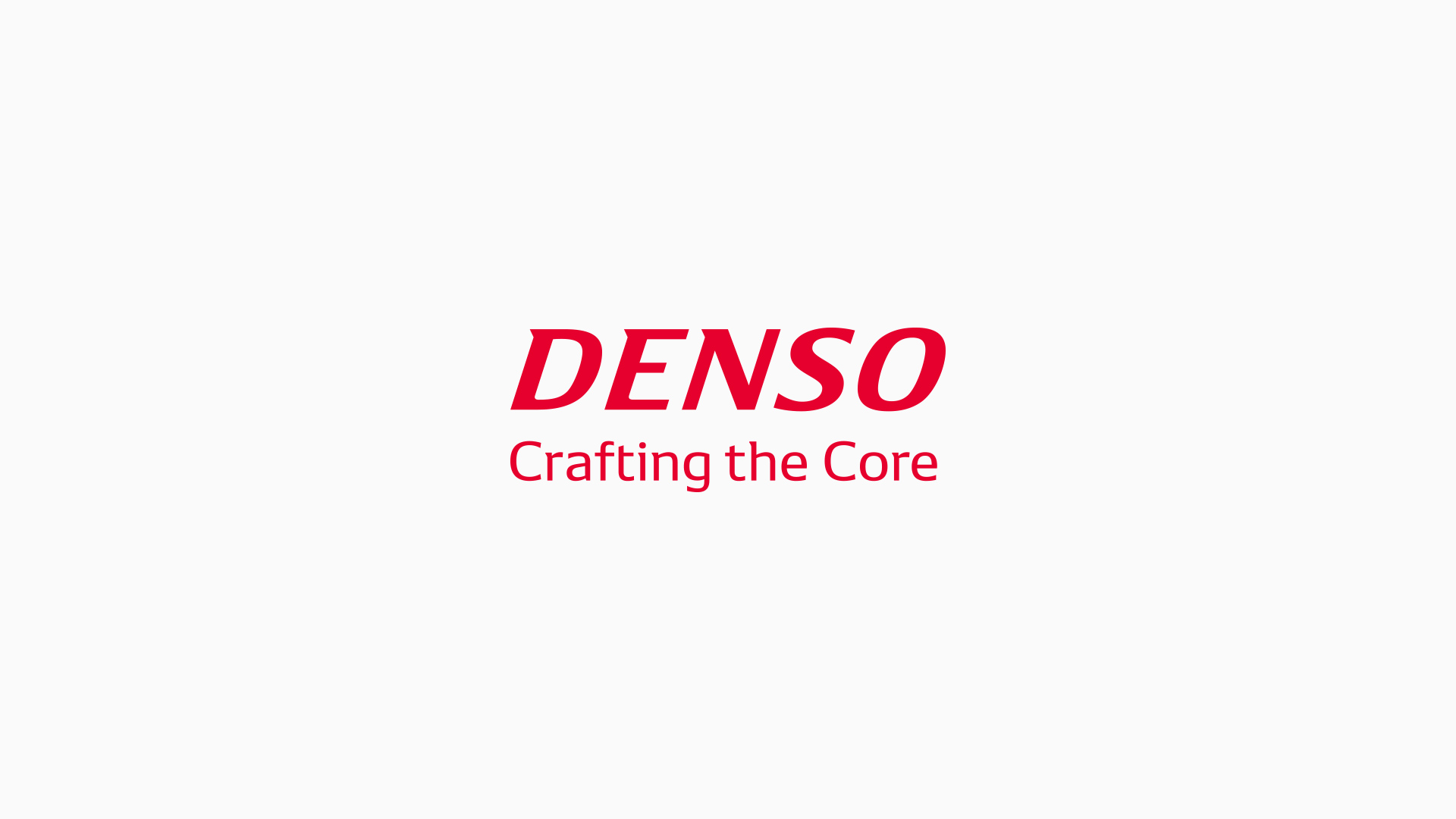
Corporate Governance
Basic Policies on Corporate Governance
DENSO recognizes the establishment of corporate governance as a priority initiative for achieving sustainable long-term increases in corporate performance in a fast-changing global market. DENSO has adopted a corporate auditor system, under which it has established the General Meeting of Shareholders, Board of Directors, Audit & Supervisory Board, and Accounting Auditors as statutory bodies. In addition to these legal functions, DENSO has established various governance-related frameworks. At the same time, DENSO provides information and engages in dialogue with shareholders and other investors regarding its business conditions on an ongoing basis, thereby implementing sound, efficient, and transparent management. Also, DENSO has adopted its Basic Policies on Corporate Governance, which can be viewed below.
Efforts to Improve Corporate Governance
DENSO is working to evolve its corporate governance and enhance strategic discussions Companywide to realize sustainable increases in corporate value. DENSO has implemented all of the principles of the Corporate Governance Code that was revised in June 2021. DENSO discloses in its Corporate Governance Report its sustainability initiatives and efforts to ensure diversity in core personnel.
Going forward, DENSO will continue to implement sound, efficient, and transparent management including through the significant reduction of cross-shareholdings.
Corporate Governance Report
Corporate Governance System and Principal Organizations
DENSO has adopted a corporate auditor system, under which it has established the General Meeting of Shareholders, Board of Directors, Audit & Supervisory Board, and Accounting Auditors as statutory bodies. Through a corporate officer system that separates and clarifies the roles between members of the Board, who are responsible for management (decision-making and supervision), and the executive vice president and senior executive officers, who are responsible for the execution of business operations, DENSO is streamlining the number of members of the Board and is realizing swift decision-making and business operations.
Under this system, depending on the circumstances, the vice president and senior executive officers serve concurrently as members of the Board to ensure that the Board maintains an overall balance of knowledge, experience, and ability. DENSO sets the term of office for members of the Board at one year, with the aim of building a flexible management structure that responds to changes in the management environment and further clarifying management responsibility during the business year.
Corporate Governance System
Board of Directors
The Board of Directors resolves matters stipulated by laws and regulations, as well as matters of importance to the Company’s decision-making. Where possible, the Board delegates authority to those in charge of business execution. This approach simultaneously accelerates execution and enables the Board to spend more time deliberating on management policies and strategies.
The Board of Directors meets once a month, in principle, and is composed of 12 members: 5 internal directors, 3 outside directors, 2 Standing Audit & Supervisory Board members, and 2 outside Audit & Supervisory Board members.
With respect to the independence of outside directors and outside Audit & Supervisory Board members, DENSO has selected a total of five independent officers (three outside directors and two outside Audit & Supervisory Board members) based on the assumption that they fulfill the independence criteria stipulated by the Financial Instruments and Exchange Act.
Resolutions must be approved by a majority of the members present at a Board of Directors’ meeting, and the meeting itself must be attended by a majority of directors. Also, DENSO provides explanations of important agenda items to the outside directors and outside Audit & Supervisory Board members before meetings are held. This is done to ensure that there are no discrepancies between the inside and outside officers in terms of the volume of information with which they are provided, and to enable the outside officers to perform to the very best of their abilities. In these ways, DENSO strives to ensure the efficient operation of the Board of Directors when making resolutions.
| Number of times convened | 13 |
|---|---|
| Attendance rate | Directors: 97% Audit & Supervisory Board members: 100% |
Appointment of Member of the Board
Policy on Balance and Diversity among Members of the Board and Audit & Supervisory Board Members
DENSO believes it is important that the composition of the Board of Directors reflects consideration of the balance of the board in terms of diversity (nationality, gender, etc.), experience, capabilities, and specialties of the members so as to ensure accurate and swift decision-making for realization of the Company’s long-term vision and stable corporate management.
The members of the Board shall be persons who are well versed in the Company’s business management and pressing issues and capable of contributing to formulation of business strategies for enhancing corporate value over the medium to long term and to accurate and effective management oversight.
Audit & Supervisory Board Members shall be persons who have knowledge of business management, finances, accounting, and legal affairs and are capable of contributing to appropriate management audit.
Furthermore, DENSO has defined 11 experiences and specialties, such as "Corporate Management," "Software/Digital," "Environment/Energy," "Governance" etc., necessary to realize the long-term vision and sustain stable corporate management. The items that DENSO expects each member to demonstrate (up to 5) are as shown in the table, below.
*It does not represent all the experience and specialties of each person.
Procedures of Appointment
The president and relevant directors listen to opinions based on various perspectives and select suitable candidates to serve as a member of the Board, comprehensively taking into account their background, personality, insight, and other factors. The Executive Nomination and Remuneration Council, which is chaired by an independent outside director and also has a majority of independent outside directors serving as its members, then holds debate on these candidates and lists the candidates for selection for the current fiscal year.
Directors are selected based on an informal resolution by the Board of Directors and deliberation at the General Meeting of Shareholders.
Audit & Supervisory Board members are selected based on an informal resolution by the Board of Directors and deliberation at the General Meeting of Shareholders, with the consent of the Audit & Supervisory Board.
Officer Composition
As of June 20, 2024
| FY | 2020 | 2021 | 2022 | 2023 | 2024 | 2025 |
|---|---|---|---|---|---|---|
| Number of members of the Board | 8 | 8 | 8 | 8 | 8 | 8 |
| Number of outside Board members (independent officers) | 3 | 3 | 3 | 3 | 3 | 3 (37.5%) |
| Number of female members of the Board | 1 | 1 | 1 | 1 | 1 | 1 (12.5%) |
| Number of Audit & Supervisory Board members | 4 | 4 | 4 | 4 | 4 | 4 |
| Number of outside Audit & Supervisory Board members (independent officers) |
2 | 2 | 2 | 2 | 2 | 2 (50.0%) |
| Number of female Audit & Supervisory Board members | 1 | 1 | 1 | 1 | 1 | 1 (25.0%) |
| Percentage of Board members who are also outside officers (independent officers) |
41.6 | 41.6 | 41.6 | 41.6 | 41.6 | 41.6 |
| Percentage of female members of the Board | 16.7 | 16.7 | 16.7 | 16.7 | 16.7 | 16.7 |
| Number of officers * | 28 | 27 | 25 | 23 | 20 | 20 |
| Percentage of female officers * | 7.1 | 7.4 | 8.0 | 8.7 | 10.0 | 10.0 |
* "Officer" refers to members of the Board, Audit & Supervisory Board members, and Senior Executive Officers.
Management Strategy Meeting and Management Deliberation Meeting
DENSO separates the functions of the Board of Directors, which conducts management oversight, and the executive directors, who handle business execution. As bodies for deliberating important matters pertaining to business execution, DENSO has established the Management Strategy Meeting and the Management Deliberation Meeting. These two bodies, together with the Board of Directors, are positioned as executive committees.
The Management Strategy Meeting holds strategic discussions with a business, functional, and regional focus, particularly from a medium- to long-term perspective. The Management Deliberation Meeting holds discussions on agenda items for meetings of the Board of Directors and other important matters pertaining to management overall (Companywide business plans, investment projects, important transactions, collaborative projects, and other important management-related matters). These bodies also share information that is important for business management in order to facilitate swift operational execution.
Meetings of both bodies are attended by the president, the vice president, the heads of each business group and functional department, general managers, and the Standing Audit & Supervisory Board members.
In fiscal 2024, the Management Strategy Meeting met a total of 22 times, and the Management Deliberation Meeting met a total of 41 times.
Management Oversight Function
Two Standing Audit & Supervisory Board members and two outside Audit & Supervisory Board members with dedicated staff are responsible for monitoring the execution of duties by directors as well as the business operations and financial conditions of the Group.
In accordance with in-house regulations, the Internal Audit Department conducts internal audits on the legality, validity, and efficiency of the Company’s operations. Based on the issues pointed out in these audits, each department of the Company is working to establish and subsequently enhance operational control and management systems. Audit & Supervisory Board members attend important meetings including meetings of the Board of Directors and audit directors’ execution of their business duties through the exchange of information with the Internal Audit Department and Internal Control-Departments, as well as with the Accounting Auditors, thereby fulfilling their management oversight function.
Executive Compensation
DENSO determines executive compensation based on the following basic policy;
-
Achieve medium- to long-term enhancement of corporate value and management from the perspective of shareholders
-
Incentivize eligible members of the Board to enhance business performance by linking the Company’s performance with individual performance
Composition of Remuneration
The compensation system for members of the Board (excluding non-executive members of the Board and outside Board members) at DENSO consists of basic compensation as fixed compensation, as well as bonuses and share-based compensation as performance-linked compensation. Compensation for non-executive members of the Board and outside Board members consists of only basic compensation (fixed amount) from the standpoint of ensuring impartiality.
Compensation for Audit & Supervisory Board members also comprises only basic compensation (fixed amount), in light of their roles and responsibilities as auditors in charge of compliance audits.
The level of compensation for members of the Board and Audit & Supervisory Board members is set at the median level at comparable companies while also referencing levels at major manufacturers of similar scale in similar sectors and business models as DENSO, based on board member compensation survey data compiled by external research institutions each year.
Method for Calculating Performance-Linked Compensation
Company performance indicators (consolidated operating profit, ROIC, and sustainability score) and the result of individual’s performance assessment result are the metrics used to calculate performance-linked compensation with the aim of establishing a link to corporate earnings and incentivizing members of the Board to increase earnings and sustain growth.
| indicator | Score Weighting | Evaluation Method |
|---|---|---|
| Consolidated operating profit | 60% | Evaluation based on degree of achievement of fiscal year target, taking into account the impact of external factors such as foreign exchange rates etc. |
| ROIC | 20% | Evaluation based on degree of achievement of fiscal year target |
| Sustainability score | 20% |
Evaluation based on overall achievement of fiscal year targets for addressing the following priority issues in the
Company’s sustainability management
|
Method for Determining Compensation
DENSO established the Executive Nomination and Remuneration Council, chaired by an independent outside Board member and whereby independent outside Board members form a majority, in order to ensure impartiality, fairness, and transparency in Board member compensation. The Executive Nomination and Remuneration Council examines the officer compensation system and decides individual compensation amounts based on corporate earnings, the position of each member of the Board, and their performance.
The Board of Directors has passed a resolution on the total amount of compensation for the current fiscal year and a resolution to entrust decisions on individual compensation to the Executive Nomination and Remuneration Council.
Compensation for Audit & Supervisory Board members is determined through a consensus of members and set within the total amount approved by resolution at the General Meeting of Shareholders.
Establishing and Strengthening Internal Controls
With the aim of ensuring fair and efficient business operations, DENSO formulated the DENSO Basic Policies for Internal Control. DENSO has stipulated basic policies for control as well as various rules and systems in areas that form the basis of our management, such as the code of conduct, management systems, risk management, and compliance. DENSO makes revisions and changes when necessary, after undertaking regularly scheduled annual verifications of the status of implementation.
Future Initiatives
To bolster the Board of Directors’ effectiveness, each year DENSO interviews participants, look back on results, and consider plans for improvement. DENSO also surveys each committee and deliberating body, including the Management Deliberation Meeting, asking participants to reflect back on the past year. These surveys provide feedback to the secretariat, which DENSO incorporates into our improvements.
Through ongoing improvements, DENSO will continue working to enhance its corporate governance.
For more information, please refer to the following documents;
Integrated Report;"Corporate Governance"
Corporate Governance Report
















